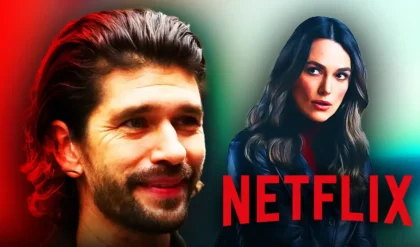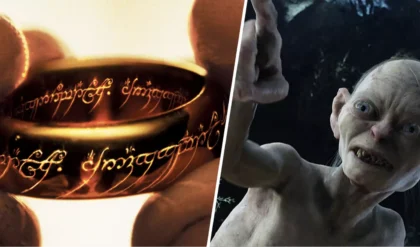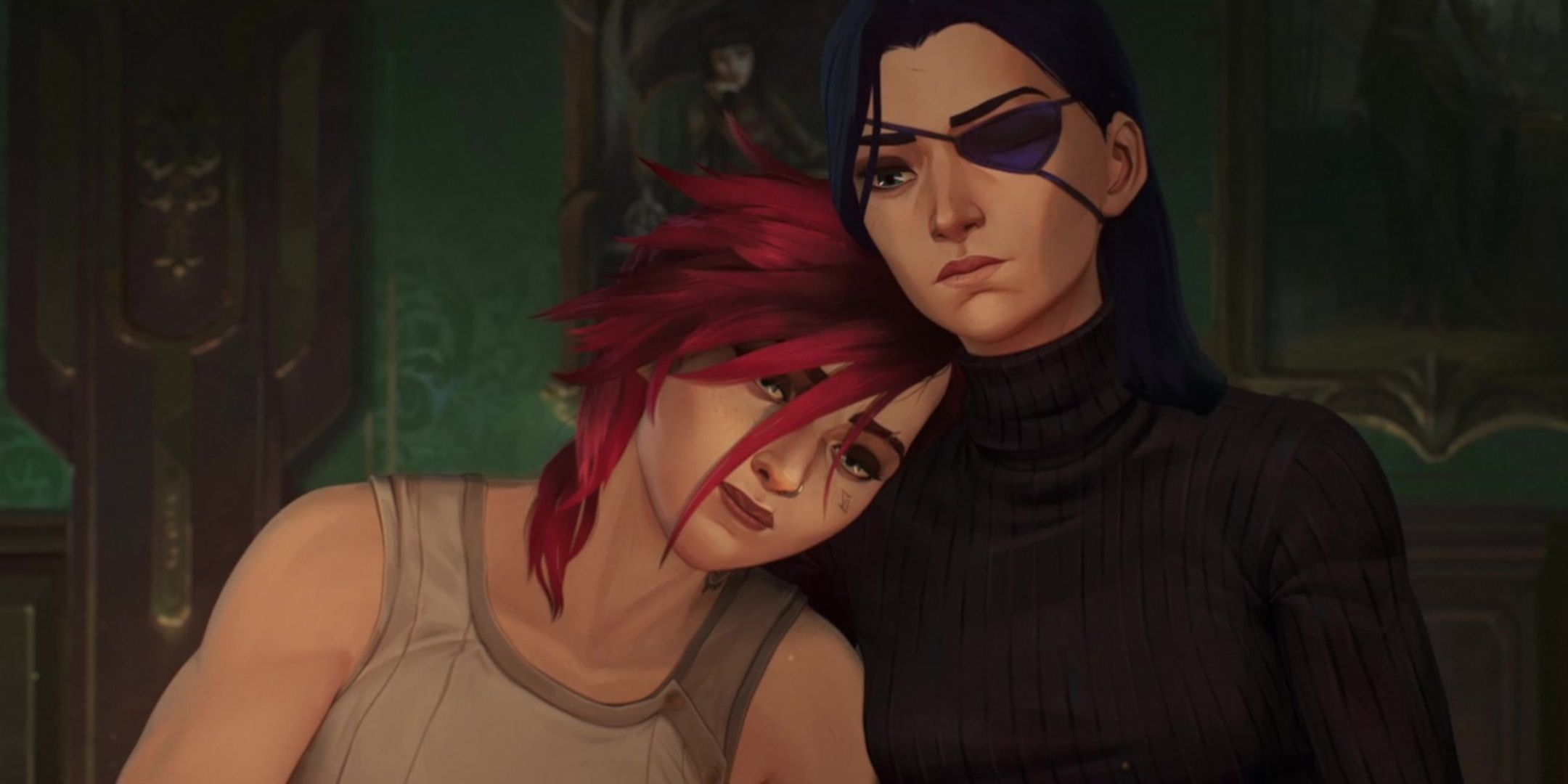
One of the reasons I believed Arcane was never going to truly commit to the queer romance between Caitlyn and Vi is because League of Legends is extremely popular in China. Riot’s long-running MOBA has been a staple of internet cafés and teenage bedrooms since its debut, a free-to-play phenomenon in the nation that millions of people play every single day.
It’s also a country whose government isn’t especially progressive towards LGBTQ+ people, with queer moments in film, television, and video games often censored when distributed there. Many forms of substantial representation won’t make it past these cuts. It’s not possible in the modern era, and that much is obvious in Arcane season two. Caitlyn and Vi’s romance is neutered to a frankly hilarious degree.
Arcane Isn’t The Same Without Caitlyn And Vi’s Sapphic Romance
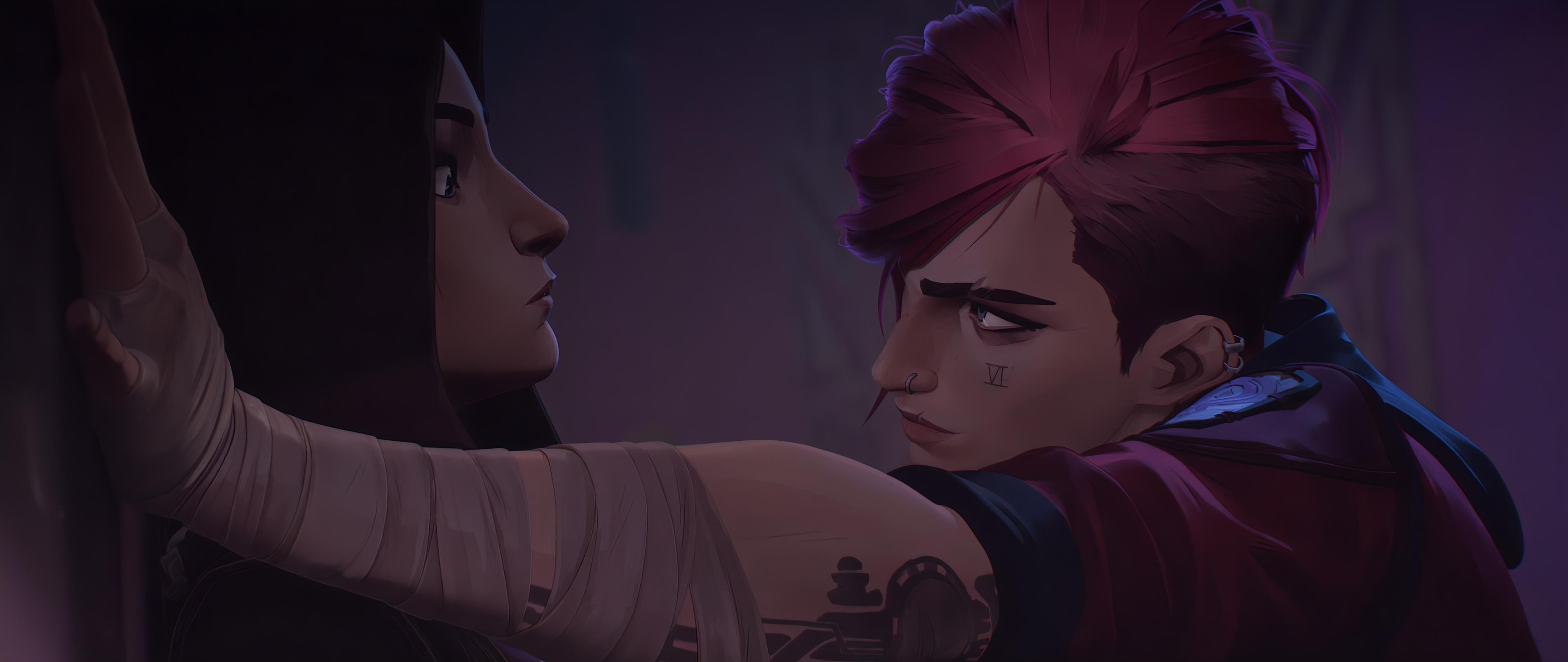
Blockbuster films like Star Wars: Rise of Skywalker, Avengers: Endgame, or Lightyear have queer characters and moments that largely take place in the background, and these smaller moments of representation feel designed to be removed from the experience without consequence. That is the sort of queerness that corporations want to incorporate. Not to represent LGBTQ+ people in a positive light, but to capitalise on a demographic where there is money to be made.
There were even reports on Inside Out 2 claiming that Pixar made a concerted effort to make characters like Riley look “less gay” in fear of a bad reaction. It wanted to make more money, even if it meant casting queer people aside.
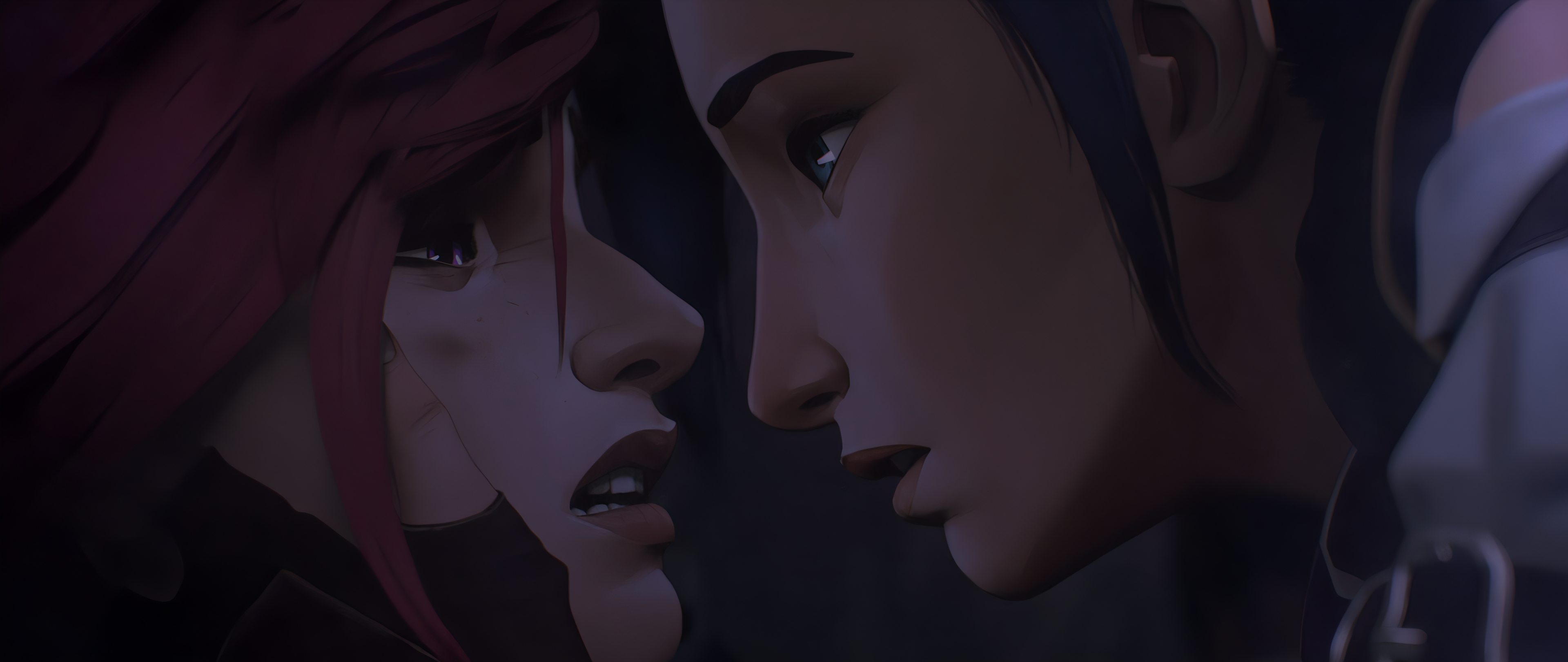
Despite government pressure on censoring queer media in China, audiences and creators remain resilient. This has been especially apparent in the landscape of BL audio dramas .
Arcane is different. The first season was accused of queerbaiting for leaving so much of Caitlyn and Vi’s romantic potential in subtext. They didn’t kiss nor confess their feelings to one another, but anyone with an ounce of critical thinking watched the two interact and knew there was something more going on between them. The dialogue, body language, and pace of their relationship was exactly what you’d expect from two lesbians falling hard.
They even have a break-up scene in the rain where Vi compares them to oil and water. Like, can this be anymore obvious? When the second season came along, Fortiche and Riot delivered on this romance, unless you happened to be watching in China. Then the reality is a bit different.
How Arcane’s Queerness Is Censored In China
Caitlyn and Vi’s relationship is a core part of their respective arcs, and when you take that away, what exactly they’re fighting for and everything they go through is undermined. Caitlyn vows to bring Jinx to justice after the death of her mother, persuading Vi to stand alongside her as a fellow enforcer despite it going against everything she believes in.
Vi is so lost and so alone after everything that she’s been through that she makes all the right choices for the wrong reasons. In the third episode, Caitlyn and Vi kiss and pull themselves deeper into a romance that, at that moment, is going to pull them further into despair. Except in China, where the scene ends awkwardly and little is accomplished or established.
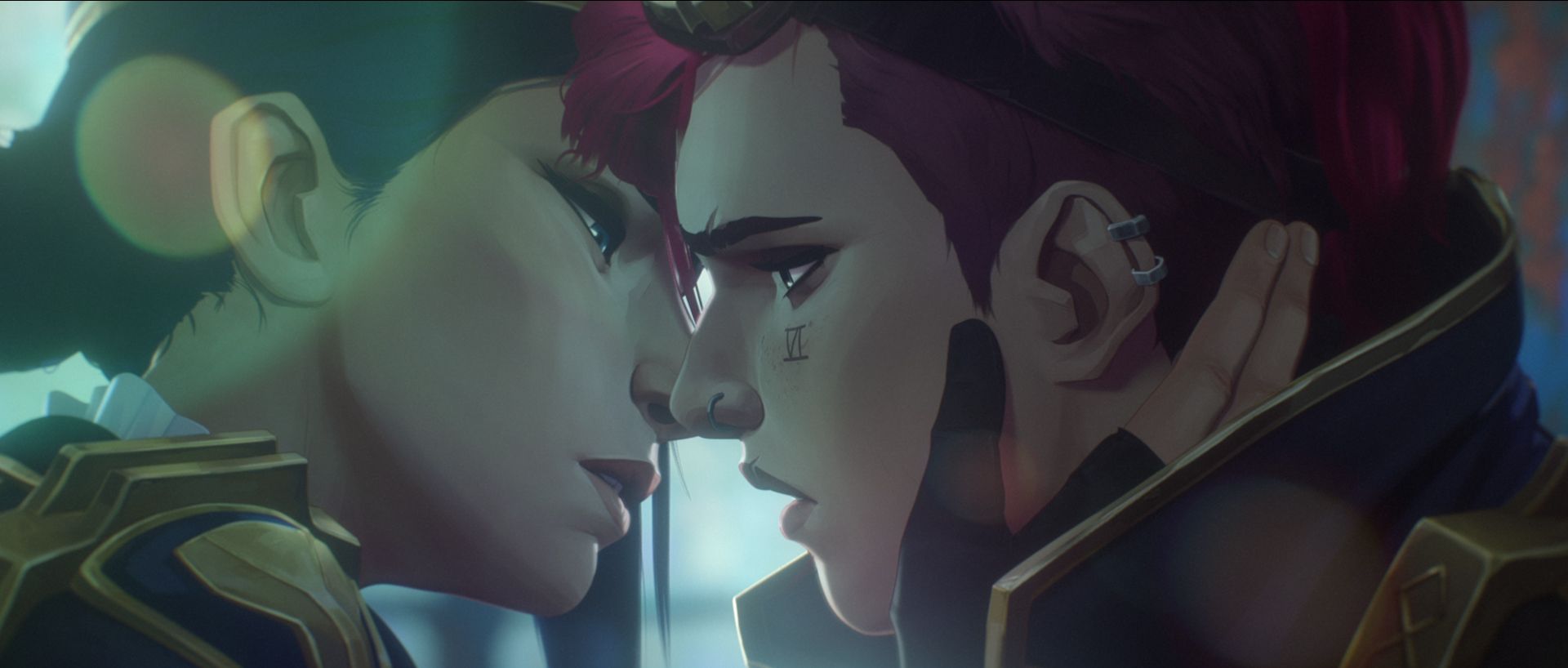
Everything that follows, including the confrontation with Jinx and Caitlyn’s betrayal of Vi in the final moments, lacks substance as a consequence. It’s as if these characters are deciding to do things for no reason, as they simply don’t make sense without that romantic context. The same goes with the sex scene in episode eight, which is skipped over entirely once Vi and Caitlyn meet in the cell.
Only the bare minimum details are discussed in the dialogue to push the narrative forward without ever hinting that these two are romantically involved. It makes the show so much worse as a consequence, all because of censorship that is no doubt silencing queer fans in China who are otherwise excited to see themselves represented. They aren’t fools.
The most jarring scene is the final one, however, in which Vi and Caitlyn are now living together after the death (or escape) of Jinx during the final battle. In its original form, it features Caitlyn walking into a lounge to join Vi by the fireplace, asking her partner softly whether “she is still in this fight” only for Vi to affectionately lean against Caitlyn’s shoulder while both women savour one another’s touch.
It is a soft moment of finality for Arcane. A climactic note where two of its most hard-fought characters promise to keep on going, as they now have each other. Hope is not lost, even if the battles ahead may be difficult.
In China, it feels like a horror movie where Caitlyn and Vi are living with ghosts.
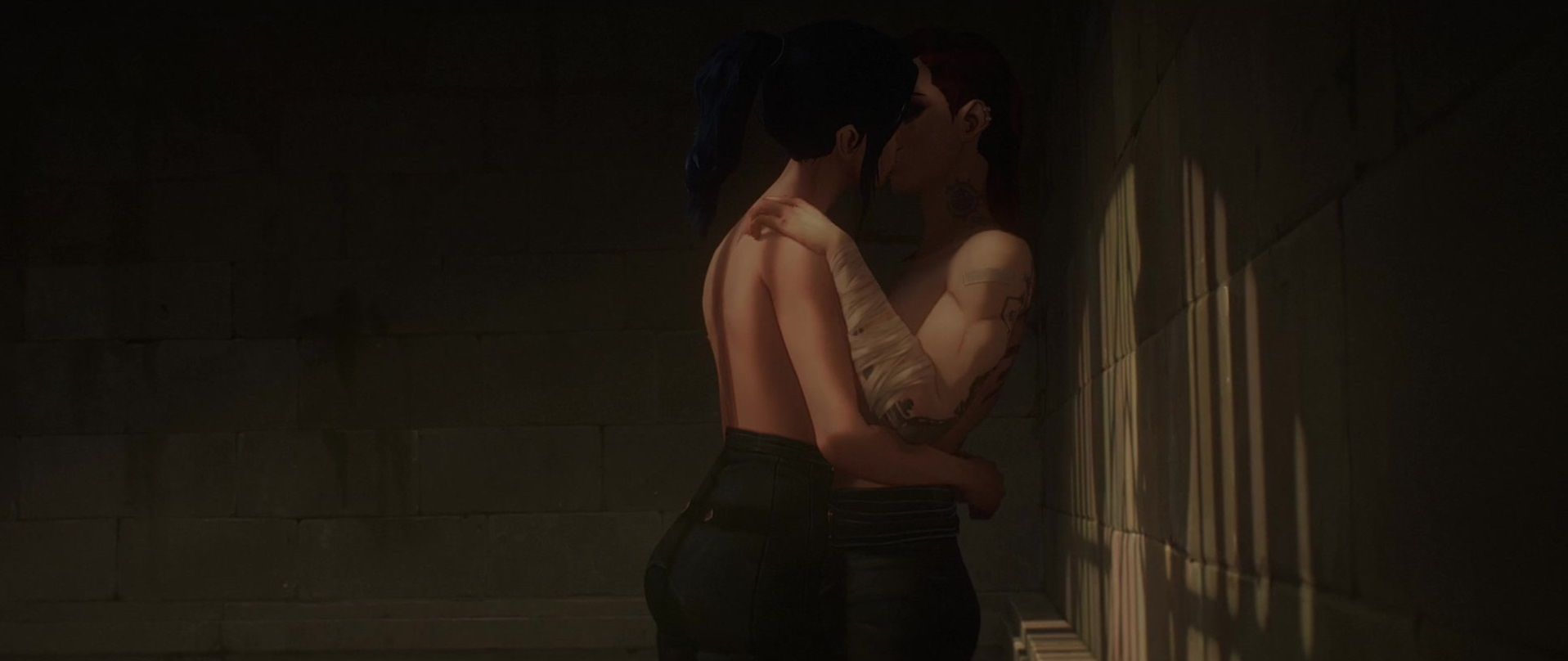
You can hardly cut the entire ending, so to deal with a scene featuring two canon lesbians, it decides to instead have both of them sit down, but then wipes one of them from existence as the camera cuts between different shots, creating the impression that they’re both alone, sitting in different rooms, and aren’t even conversing with one another. It is bizarre, and speaks to how a story that features prevalent queer themes falls apart when censorship tries to erase them.
I can’t get over Caitlyn leaning her head against a non-existent shoulder. It will haunt my dreams forevermore. And I didn’t even mention the scene with Maddie where Caitlyn appears to be talking to herself in bed instead of to another character. It’s all so strange…
Arcane’s Queer Story Deserves To Be Told
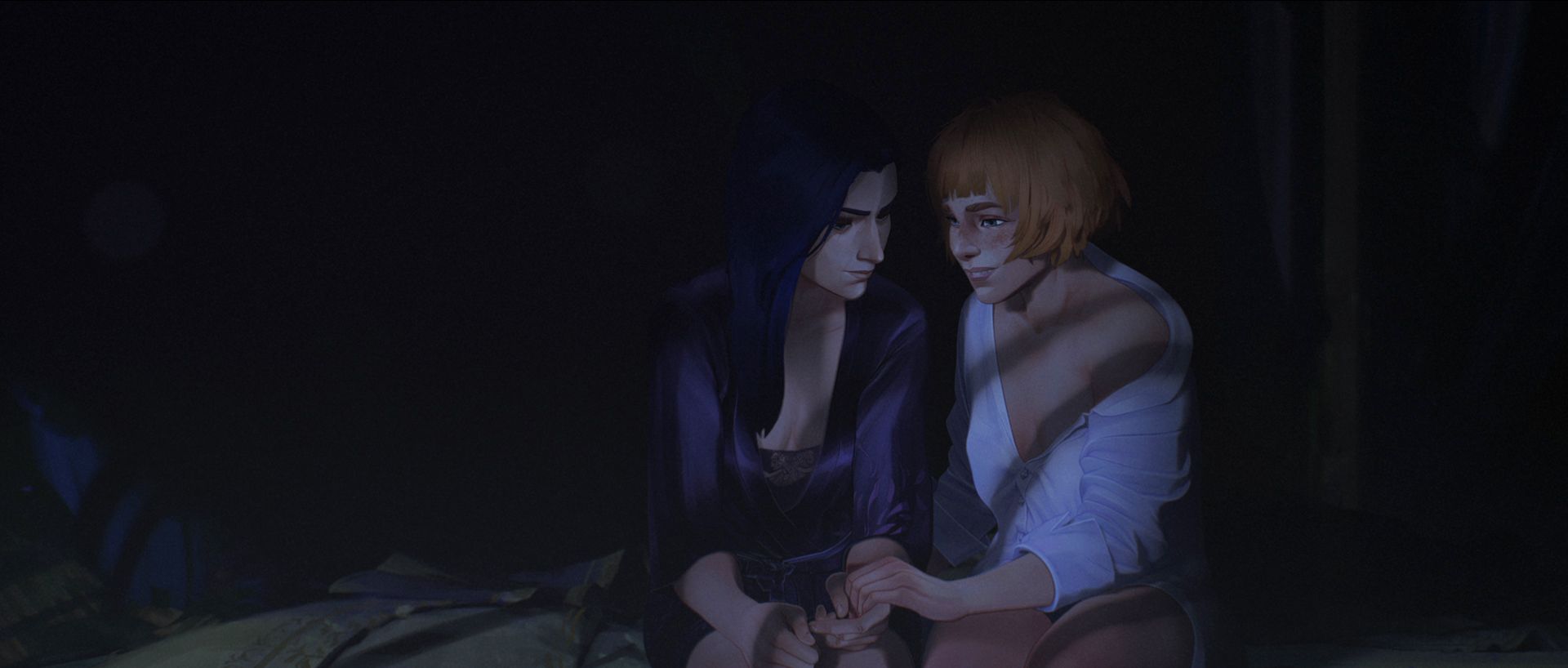
Last week I caught up with story editor, co-writer, and co-producer Amanda Overton to talk about Caitlyn and Vi’s relationship in Arcane, and to my surprise, getting them together was always the plan. This makes the censorship even more egregious when Riot and Netflix did not write this story to deliberately queerbait audiences with promises of representation, but let it reach the finish line only to neuter it regardless. To make more money in territories that don’t want LGBTQ+ people to have a voice in the media, shows that, deep down, we are considered expendable.
Suppressing the voices of queer folks clearly takes precedence over telling a coherent story or doing character arcs justice, even though Chinese audiences are likely smart enough to read between the lines and discover the true intentions on their own terms. It likely isn’t the only country to do this with Arcane, or other animated shows like The Owl House and She-Ra where queer characters or themes are so fundamental to their existence that removing them sucks the life out of the stories all of them intend to tell.
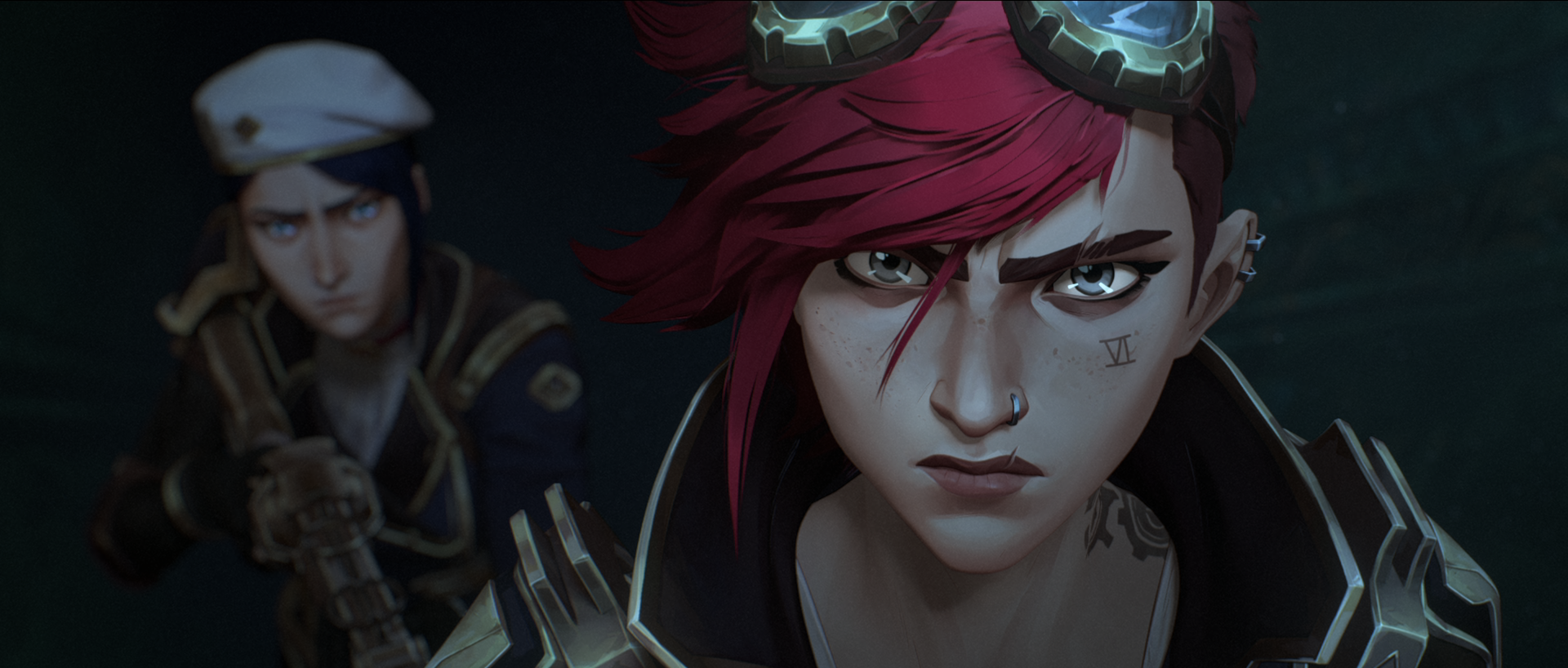
LGBTQ+ individuals exist all over the world, and no matter how they are supported by their home countries, they are doing everything in their power to live their lives to the fullest and try to be happy. Arcane might just be a television show, but it’s one of the biggest of the year and champions a sapphic couple at the centre. That matters. In China and other countries, that’s been taken away because of sheer bigotry. Things are getting better, but we still have so far to go.



